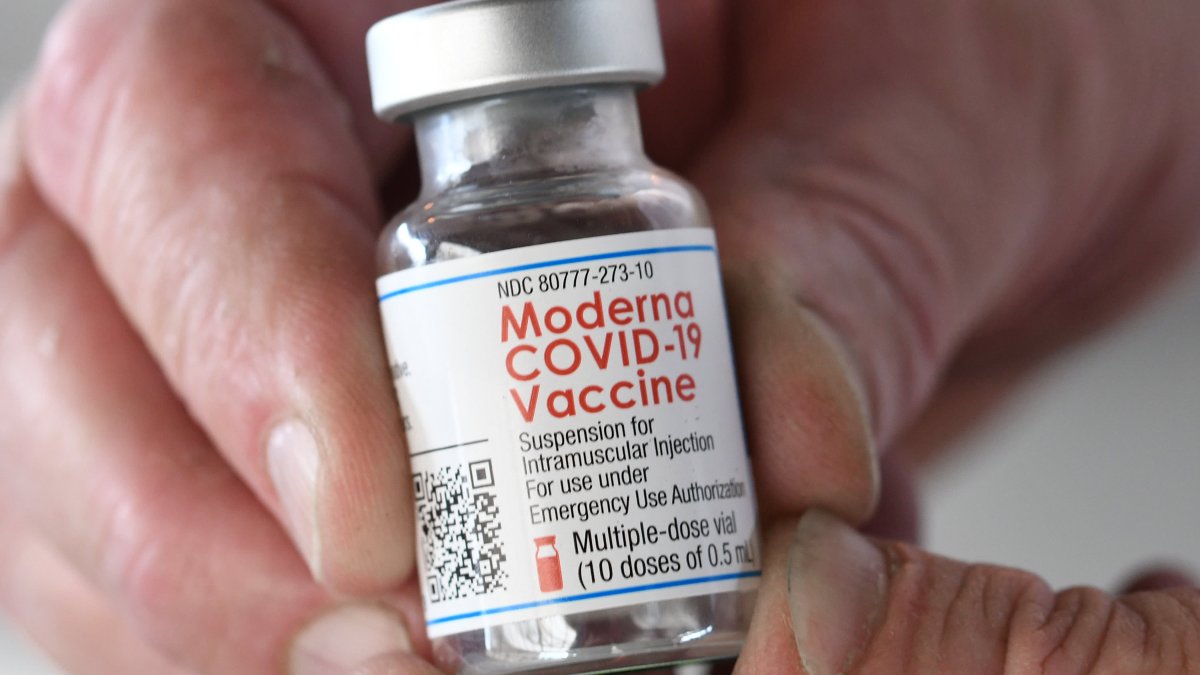
A federal advisory panel is meeting Thursday and Friday to consider whether to back booster shots of both the Johnson & Johnson and Moderna COVID-19 vaccines.
A panel of outside of experts for the Food and Drug Administration is meeting this week to determine whether extra doses of the Moderna and Johnson & Johnson vaccines should be authorized and, if so, who should get them and when - but there are two factors complicating the matter.
Last month, the FDA authorized booster shots of Pfizer’s vaccine for older Americans and other groups with heightened vulnerability to COVID-19. Regulators took up the question of Pfizer boosters first because the company submitted its data ahead of the other vaccine makers.
Both Moderna and Johnson & Johnson have submitted requests for emergency use authorization of their booster shots of the COVID vaccines, but each with their own changes.
Moderna asked for a half-dose of its vaccine to be used for booster shots and Johnson & Johnson requested a time period ranging from two to six months after its initial dose.
Feeling out of the loop? We'll catch you up on the Chicago news you need to know. Sign up for the weekly Chicago Catch-Up newsletter here.
The two initial Moderna shots contain 100 micrograms of vaccine each. But the drugmaker says 50 micrograms ought to be enough for a booster for healthy people.
A company study of 344 people gave them a 50-microgram shot six months after their second dose, and levels of virus-fighting antibodies jumped. Moderna said the booster even triggered a 42-fold rise in antibodies able to target the extra-contagious delta variant.
In a new review of Moderna's data, the FDA did not indicate Tuesday if it was leaning toward clearing the company's booster. It said vaccines used in the U.S. still provide protection, and it raised questions about some of Moderna's data.
Local
FDA staff similarly didn't take a stance on Pfizer's COVID booster shots last month. That didn't stop the agency's Vaccines and Related Biological Products Advisory Committee from recommending third shots.
In an online review posted Wednesday, FDA scientists also didn't reach a firm conclusion about whether there's enough evidence for J&J boosters, citing shortcomings with the company's data and little information on protection against the extra-contagious delta variant of the coronavirus.
J&J said in its FDA submission that a six-month booster is recommended but that a second dose could be given at two months in some situations.
FDA reviewers wrote that a study of the two-month booster plan suggests “there may be a benefit," while pointing to only small numbers of people who got another shot at six months instead.
For its part, J&J filed data with the FDA from a real-world study showing its vaccine remains about 80% effective against hospitalizations in the U.S.
Overall, the J&J vaccine "still affords protection against severe COVID-19 disease and death," the FDA's reviewers concluded. But data about its effectiveness “are consistently less” than the protection seen with Pfizer and Moderna shots.
When the FDA's panel meets to review the Moderna and J&J vaccines, experts will discuss whether a third Moderna shot should contain just half the original dose and what’s the best timing for a second shot of the single-dose J&J vaccine.
The panel will also look into the safety and effectiveness of mixing-and-matching different brands of vaccine, something regulators have not endorsed so far.
An estimated 103 million Americans are fully vaccinated with Pfizer’s formula, 69 million with Moderna’s and 15 million with J&J’s, according to the CDC.
Scientists emphasize that all three vaccines used in the U.S. still offer strong protection against severe disease and death from COVID-19. The issue is how quickly, and how much, protection against milder infection may wane.
The final go-ahead is not expected for at least another week.
After the FDA advisers give their recommendation, the agency itself will make a decision on whether to authorize boosters. Then next week, a panel convened by the Centers for Disease Control and Prevention will offer more specifics on who should get them. Its decision is subject to approval by the CDC director.
If both agencies give the go-ahead, Americans could begin getting J&J and Moderna boosters later this month.
"So Oct. 14, the FDA advisory committee will start considering Moderna boosters," Chicago Department of Pubic Health Commissioner Dr. Allison Arwady said. "So I would expect by... a week or two after that we should have guidance for people who got Moderna as their first series and similarly J&J probably. They'll consider these, I would guess, together so I'd say... before the end of October, I would expect that we would have guidance."
The CDC's advisory committee is next scheduled to meet on Oct. 20 and 21 to discuss the boosters.
While the FDA and CDC so far have endorsed Pfizer boosters for specific groups only, Biden administration officials, including Dr. Anthony Fauci, have suggested that extra shots will eventually be recommended for most Americans.